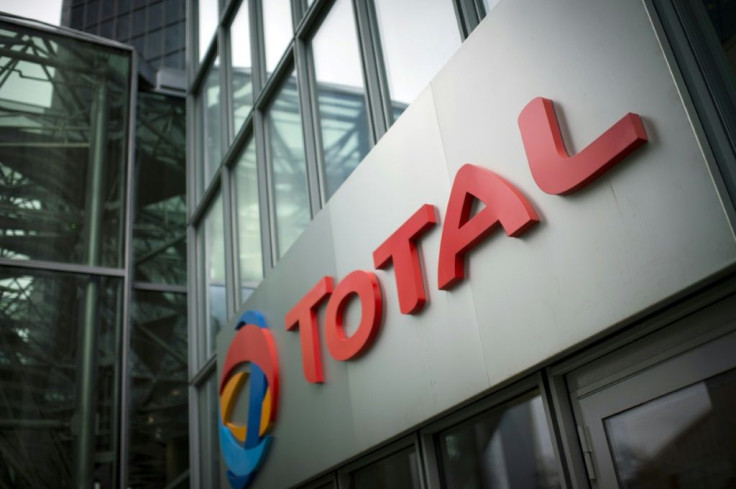Total's Mozambican Gas Plans Delayed, Not Doused By Attacks
A deadly assault by Islamic State-linked militants in Mozambique could delay plans by Total to build a massive liquefied natural gas facility, analysts warn, although the project is still likely to go forward.
Dozens of civilians were killed in the assault and capture of the key northern town of Palma by militants, and thousands fled the area.
Total, a French energy major, announced Saturday that it was suspending operations at the facility, located just a dozen kilometres from Palma.
The announcement came just days after Total announced it was resuming construction, which had been suspended for months owing to previous violence.
The Mozambique LNG project envisages building a massive facility capable of chilling and compressing natural gas into a liquid state, which makes it much easier to transport large amounts by ship.
The facility will also be capable of storing liquefied natural gas (LNG) and loading it onto ships.
Total and its partners plan to invest $20 billion in the project, and raised nearly $15 billion in financing last year, the largest amount ever for a project in Africa.
Last month, Total chief executive Patrick Pouyanne insisted that the project, which it inherited from the US energy firm Anadarko, was still on track to begin operations in 2024.
He indicated having reached agreement with Mozambican President Filipe Nyusi on creating a 25-kilometre (15-mile) secure zone around the site before work resumes on the site.
That objective will be much more complicated now that militants have taken control of Palma.
Joseph Hanlon, an expert on the region at Britain's Open University, said it was unlikely Total would return in the short term as the government had failed to provide security for the facility.
"It will take perhaps two years for US, Portuguese and other trainers to create a functioning army" capable of maintaining security, Hanlon estimated.
But Michel Cahen, a specialist on Portugese-speaking parts of Africa at France's National Scientific Research Centre (CNRS), said: "I don't think Total will abandon" the project.
"But it could put it on ice for the time needed -- one year, two years" for security to be established in the region, he said.
"We are now expecting the project to start in the second half of 2025," said analyst Pranav Joshi at Rystad Energy.
"I don't have any doubts that the project will advance and enter into service despite the very high level of political risk and what just happened in Palma," said Francis Perrin, director of research at the Institute of Strategic and International Relations in Paris.
He noted that Total's diverse portfolio means it is not dependent upon the project.

"They currently have 10 natural gas liquefaction facilities in operation that cover the major regions of the world," said Perrin.
Even without Mozambique, Total "will remain a major in LNG", he added.
LNG is a very important element of Total's strategy to diversify and reduce the carbon impact of its operations.
Burning natural gas produces considerably less CO2 responsible for global warming than oil and coal, and demand for the fuel has been increasing.
It even rose last year as the Covid-19 pandemic dampened energy demand overall.
Total has risen to number two globally in the fuel among private energy firms, behind Shell.
While important for the firm, it doesn't have all its eggs in the LNG basket, however.
"Total has other interests in Africa. It has only spent a small part of the $20 billion project cost, and can still walk away," said the Open University's Hanlon.
If Total can indeed walk away, the Mozambican government finds itself in a tough situation -- it has bet big on natural gas to improve its economy.
ExxonMobil has apparently gone cold on its Mozambique gas project, while Italy's ENI is only moving forward with a portion of its own project at the moment.
"Mozambique is waking up to the realisation that billions of dollars flowing into the state budget and local pockets was only a dream," said Hanlon.
The energy consultancy WoodMackenzie has estimated that Total's project alone could generate $3 billion per year in revenue for the government by 2030.
That is an enormous amount for a country with a gross domestic product of around $15 billion currently.
Experts are divided over whether the insurgency is being driven by the prospect of gas riches.
Some believe Islamic State militants took over an existing local insurgency.
"Local people saw the development of ruby mines and the initial gas development, and realised there were no jobs for them; the gas and ruby money was not trickling down to them," said Hanlon.
But CNRS's Cahen believes it isn't a struggle to control the gas resources.
"If Total is attacked, it is because it has allied itself with the Mozambican government," he said.
© Copyright AFP 2024. All rights reserved.





















